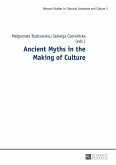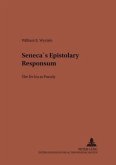Emotions as 'the early form of knowledge about the surrounding world' constitute a necessary component of the human psyche. Nevertheless, through the ages of the development of mankind, the emotional aspect was often regarded as a dispensable part of human nature, which should be fully ruled by reason. Despite the general opinion about the necessary control of reason over emotions, the possible participation of the latter in the human decision making processes was taken into consideration already in Antiquity. The dealing with the ethical aspect of emotions was one of the prevailing issues in the works of Euripides. In his tragedy of Phaedra the poet gives the broadest description of the process, which can be observed in a man afflicted with 'emotional obsession'. The reception of this topos can also be considered in the tragedies of Roman philosopher Seneca, and modern French poet Jean Racine. This book was awarded as the best PhD thesis in culture field in Poland in 2009.








